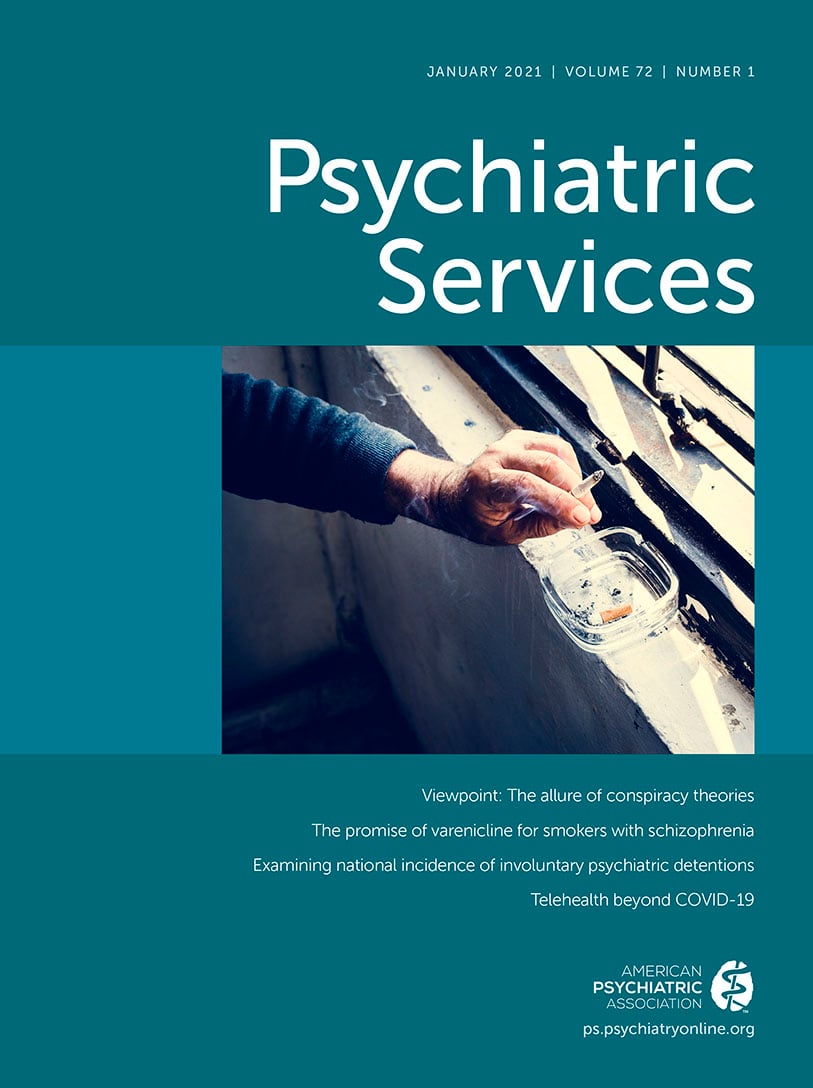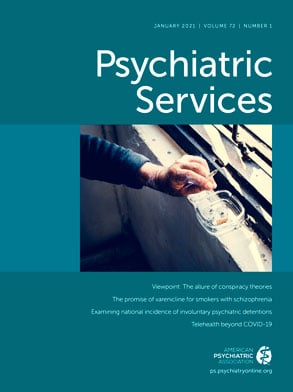Humans seem drawn to dark conspiracy theories, often in favor of the simple truth. In response to the COVID-19 pandemic, misinformation and conspiracy theorizing have surged. President Trump, for example, praised the antimalarial drug hydroxychloroquine as a “game changer” despite scant empirical evidence of its efficacy and safety for the treatment of SARS-CoV-2 (
1).
Others in the administration have promoted the unsubstantiated theory that SARS-CoV-2 originated in a Chinese lab, despite scientific consensus that the virus likely originated in an animal source before zoonotic transfer and that no evidence indicates that the virus emerged through deliberate lab manipulation of a related virus. In early May, conspiracists made the claim, which has gone viral, that Bill Gates, the head of a philanthropic organization, and Dr. Anthony Fauci, the director of the National Institute of Allergy and Infectious Diseases, have secretly plotted to use the pandemic to profit and seize political power.
Some conspiracy theories, such as the belief that Earth is flat or that the moon landing was faked by the government, are laughable and harmless. Others, such as the notion that vaccines are part of a scheme to cause mass harm, are quite dangerous and may lead to outbreak of disease. The belief among one-third of Americans that climate change is a hoax perpetrated by the scientific community endangers the very planet.
As psychiatrists, we need to be alert to the fact that many of our patients are vulnerable to medical misinformation and conspiracy theories about critically important medical issues, from vaccines, to the etiology of diseases such as SARS-CoV-2, to the availability of medications. For example, one study (
2) reported that in a nationally representative sample of the U.S. population, 37% of respondents agreed with the statement, “The Food and Drug Administration is deliberately preventing the public from getting natural cures for cancer and other diseases because of pressure from drug companies.” Only 32% disagreed with this statement.
Belief in conspiracies and mistrust in general can discourage our patients from seeking medical treatment and adhering to it. For example, consider the prevalent belief that the emergence of HIV was a plot by the U.S. government to kill citizens. One study reported that 34% of respondents, in a sample that included members of both minority and nonminority groups, believed that the government created AIDS to kill people from minority groups, and more than half believed that a significant amount of information about AIDS is withheld from the public. Ten percent did not trust their provider to give them the best care possible (
3).
Modern Americans are hardly alone in our taste for conspiracy. Throughout history and in different cultures, conspiracy theories have been widespread, inviting the question, What makes humans so prone to these often outlandish explanations of everyday experience? At first blush, conspiracy theories appear to strengthen our tribal unity and confirm our biases and prejudices toward various target groups, typically racial-ethnic and religious minorities. Of course, these theories can also serve obvious political motives. For example, several right-wing media outlets claimed the threat of COVID-19 was a hoax perpetrated by the liberal media to politically damage President Trump. However, on a deeper level, these beliefs have—or once had—a powerful evolutionary advantage that is reinforced by how we are cognitively hardwired.
Until relatively recently, humans lived together as small groups of hunter-gatherers. Our survival depended, in part, on our ability to recognize and mitigate various threats. Aside from predators, threat came from other tribes; the archeological record is replete with evidence of violent human conflict (
4). Having the capacity to imagine and anticipate that other people might form coalitions and conspire to harm one’s clan would confer a clear adaptive advantage: a suspicious stance toward others, even if mistaken, would be a safer strategy than carefree trust. Likewise, the paranoia that drives individuals to constantly scan the world for danger and suspect the worst of others probably once provided a similar survival edge.
Just as paranoid individuals sometimes have real enemies, some conspiracy theories turn out to be true. For example, the Watergate hotel was in fact bugged by Republican operatives, and there is convincing evidence that the Russian government interfered in the 2016 presidential election. But it is not so easy to know whether a conspiracy theory is fact or fiction, and for a good evolutionary reason.
We have evolved to quickly detect patterns and understand how events in our world might be causally related to each other. Our tendency to discern patterns and make sense of the world also makes us prone to cognitive errors, such as seeing connections between events when none exist. In fact, people who tend to see meaningful design in random events or stimuli are much more likely to endorse conspiracy theories than are those with less of this tendency—a bias, it turns out, we can be educated to resist. One study, for example, asked participants how likely they were to believe a common conspiracy theory, such as the U.S. government having advance knowledge of the 9/11 attacks. Researchers also rated their belief in an experimentally fabricated conspiracy theory, that the makers of the popular drink Red Bull add substances to it that raise consumers’ desire for the product. Then they asked the participants to rate the extent to which they believed that a random computer-generated sequence of coin flips (i.e., heads or tails) was fully random or fully determined.
Participants who were more likely to detect order in this random sequence were also more prone to endorse belief in conspiracies. The clear implication of the study is that having a strong bias to find structure and purpose in the world makes us susceptible to conspiracies because they give us a clear, if erroneous, explanation of how events fit together (
5). The flip side is that most of us also have a strong aversion to seeing events as random and coincidental; we greatly prefer to think that occurrences (e.g., the pandemic) happen to us for a reason. (Of course, this observed cognitive bias in individuals who are prone to belief in conspiracies does not by itself explain the typical paranoid—and affective—nature of conspiracy theories.)
As psychiatrists, we see this phenomenon all the time. It is more the rule than the exception that a patient stricken with cancer, for example, wonders what he or she did wrong to deserve the illness, as if it were a meaningful punishment instead of a random genetic mutation.
Of course, not everyone is as vulnerable to conspiratorial thinking. Research shows that higher levels of education are inversely correlated with belief in conspiracies, presumably because education fosters critical thinking and skepticism, which makes it easier to suppress one’s often misleading intuition (
6).
It should not surprise us that so many of our patients are vulnerable to medical misinformation and to “fake news” in general. Because of social media and the Internet, we are practically drowning in information. For a species so intent on connecting the dots and making sense of the world, this information-rich environment is fertile ground for confusion and conspiracy theories. People do not instinctively fact-check what they read or listen to—doing so requires far too much cognitive work and runs counter to how the brain has evolved. They do not routinely ask themselves (although they should), Where did this medical claim or story come from? or, What does an author or political figure hope to gain by telling it to me?
We are cognitively hardwired for plausibility, not for truth or accuracy. Thus, conspiracy theories and misinformation will always have a receptive audience. We can help our patients to counter this all-too-human tendency by encouraging their capacity for critical thinking and skepticism. As a society, our survival depends on it.

